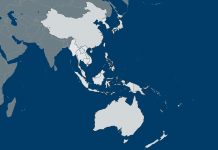The international system is always changing. It usually shifts one piece at a time, each one constrained by the system to dampen its impact – and thus maintain balance and stability. Many years ago, for example, when China entered a period of breakneck economic growth, it did so without the U.S. investment and trade needed to stabilize the global impact of its rise. Yet the international system as a whole remained balanced. The world is designed to manage singular and limited shifts, as evidenced by the decades it took to create something as intricate as the European Union. It is much less comfortable managing relatively sudden and widespread shifts – which is exactly what is happening now.
On the borders of Russia, President Vladimir Putin has submitted a peace proposal, which is essentially an acceptance of the fact that Russia does not have the power to retake all of Ukraine and would settle for minor concessions. This is, in itself, notable. Before the war, Russia was widely thought to have reclaimed much of the military and political power it lost in the fall of the Soviet Union. Putin’s proposal confirms that Russia’s recovery was an illusion and, in doing so, tacitly informs other nations that they ought to reconsider their Russia strategies accordingly.
Meanwhile, the European Union is in disarray. The EU helped stabilize a region given to war by embracing common liberal ideologies while discarding its imperial power and aligning with the United States. This system has been compromised by national interests, some of which run counter to the liberal ideals on which the bloc was founded. Recent elections in Europe, which resulted in the success of many right-wing candidates, call into question the ideals of the past and threaten to give way to a new Europe. How this process plays out will change Europe’s relationship with both the United States and Russia.
The U.S. is facing an election that will change its reality regardless of the outcome. If Donald Trump wins, he will seek to change the way in which decisions are made and redefine America’s relationship with other countries. He has accused Europe of taking advantage of the United States by refusing to fully fund its military obligations and has promised a foreign policy less interested in internal ideology and more interested in the economic benefits they offer the United States. If Joe Biden suffers a narrow defeat, the Democrats will likely reconsider many ideological initiatives they have sought to implement. If he narrowly wins, they will likely do likewise, particularly with regard to foreign policy. This year’s election will be the start of the next and operate based on lessons learned.
In Europe and the United States, immigration is an important issue. Despite dwindling labor pools and falling birth rates, there is increased suspicion of or outright opposition to immigrants. This has an impact on migrants as well as their countries, and it could close the door to the most attractive migration targets.
Russia, Europe and the United States are the most influential political actors on Earth. I exclude China here only because it appears far less interested in homegrown change than the others. If that changes, we will revisit its impact. If it doesn’t, the others will experience plenty of changes of their own, which will affect their behavior and thus the way the international system functions.







